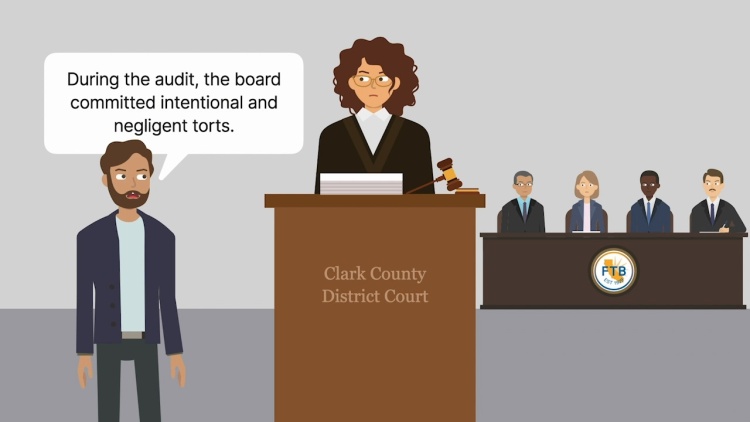Franchise Tax Board of California v. Hyatt
United States Supreme Court
538 U.S. 488, 123 S. Ct. 1683, 155 L. Ed. 2d 702 (2003)

- Written by Mary Phelan D'Isa, JD
Facts
Gilbert P. Hyatt (plaintiff) filed a partial-year income-tax return in California representing that Hyatt ceased being a California resident as of October 1, 1991, and had become a resident of Nevada. The California Franchise Tax Board (CFTB) (defendant) conducted an audit, noting the alleged change in residence occurred shortly before Hyatt received a substantial fee. Through an audit, the CFTB determined that Hyatt remained a California resident through April 1992 and issued notices of its tax assessments based on that date. Hyatt contested the assessments and residency determination in California through the CFTB’s administrative process and filed a lawsuit in Nevada against the CFTB for alleged numerous negligent and intentional torts committed by the CFTB during the audit. Hyatt also asked the Nevada court to make a declaratory ruling on Hyatt’s Nevada residency as of September 26, 1991. The Nevada trial court dismissed Hyatt’s claim for lack of subject-matter jurisdiction. The Nevada Supreme Court affirmed in part and held that the lower court should have dismissed the negligence claims under principle of comity, but that Nevada’s interest in protecting its citizens from intentional torts and bad-faith acts committed by sister-state government employees was entitled to greater consideration than California’s policy to give its tax agency immunity from suit. The CFTB appealed.
Rule of Law
Issue
Holding and Reasoning (O’Connor, J.)
What to do next…
Here's why 907,000 law students have relied on our case briefs:
- Written by law professors and practitioners, not other law students. 47,100 briefs, keyed to 996 casebooks. Top-notch customer support.
- The right amount of information, includes the facts, issues, rule of law, holding and reasoning, and any concurrences and dissents.
- Access in your classes, works on your mobile and tablet. Massive library of related video lessons and high quality multiple-choice questions.
- Easy to use, uniform format for every case brief. Written in plain English, not in legalese. Our briefs summarize and simplify; they don’t just repeat the court’s language.





